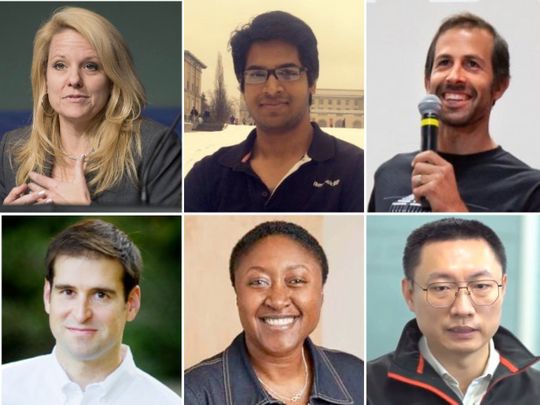
Image Credit: Twitter | LinkedIn
Elon Musk has reportedly found someone to replace him after the tech billionaire said his 15-year run as Tesla CEO has been everything but pleasant.
“I frankly don’t want to be the CEO of any company,” Musk, chief executive of at least five firms, said in an interview. “I would much prefer to spend my time on design and engineering, which is what intrinsically I like doing.” After he took over Twitter in October, Musk said in December he was willing to resign as “Chief Twit” when he finds someone “foolish enough to take the job”.
Tesla shares tanked in 2022 amid production challenges, global rate hikes, intense competition and price cut pressures. Let’s take a look at Musk’s possible replacement who could lay the groundwork for Tesla’s next chapter:
Ashok Elluswamy
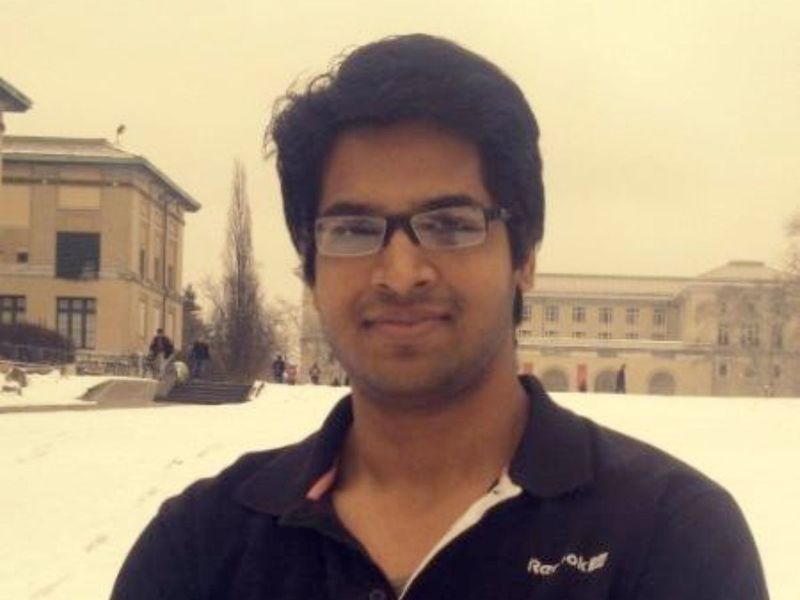
Image Credit: LinkedIn
On LinkedIn, Ashok Elluswamy is listed as a Tesla robotics engineer, with expertise ranging from computer vision/perception, planning and control. In 2015, around the time Musk sent out a call for AI team recruits, Elluswamy was the team’s first employee.
Elluswamy, 34, was born in Tindivanam, in Tamil Nadu. In a recent interview, when Elon discussed Tesla’s autopilot staff, he revealed Ashok Elluswamy was the head of the autopilot engineering.
“The Tesla Autopilot AI team is extremely talented. Some of the smartest people in the world,” Musk said in an interview referring to Elluswamy and Andrej Carpathy, two more of Tesla’s top tech guys. Musk has also taken to Twitter to reveal how he chose Elluswamy to work as his autopilot team director.
But, because full-self-driving (FSD) AI threatens to upend an entire industry, it has also been the subject of much vitriol.
Numbers, however, don’t lie. In 2020, 42,052 deaths were caused by vehicular accidents involving other auto brands vs 8 driver deaths for Tesla — about 0.019% of the total, according to US National Safety Council data.
Despite criticisms pointing to FSD’s limitations, they haven’t led many Tesla owners to regret their purchase. Tesla confirmed that over 285,000 people bought its Full Self-Driving (FSD) package in North America as of December 2022.
In addition to actual EV sales, FSD is a potential cash cow for Tesla: From $7,000 in August 2019, the price went up a year later to $8,000, then $10,000 in October 2020, before rising further to $12,000 in 2022. The software improves over time, with every mile driven by FSD user. Elluswamy is a big part of that cash cow.
Gwynne Shotwell
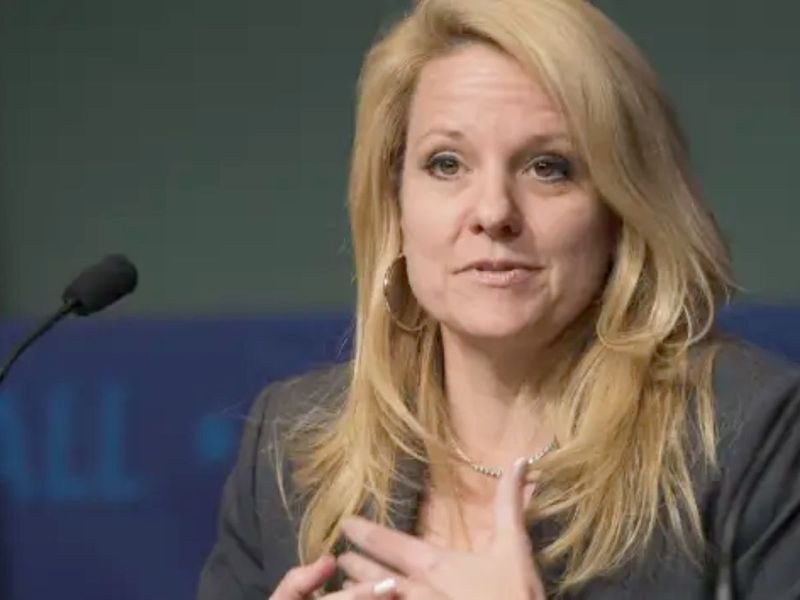
Image Credit: Nasa
Much of the success of Musk’s aerospace passion project, SpaceX, can be ascribed to Gwynne Shotwell, its current president and chief operating officer (COO). Shotwell, 58, is considered as another would-be Tesla CEO.
She joined the reusable rocket company Space X when Musk started it in 2002 and eventually rose to the position of COO, overseeing everyday operations as well as client and business relations.
Shotwell worked at the Aerospace Corporation for more than 10 years in the beginning of her career before serving as director of Microcosm’s Space Systems Division.
In the past 20 years, Shotwell has been with Musk in achieving a number of significant milestones. “I have helped bring the commercial launch business back to this country, along with the tens of thousands of jobs that come with it,” Shotwell said in her commencement address at her alma mater, Northwestern University’s graduation ceremony. “The one accomplishment that we have that I am most proud of is helping to get our country flying astronauts again on American-made rockets and spaceships.”
She is now in charge of a company with 10,000 employees and is worth about $74 billion, sending manned missions to space from US soil and launching dozens of satellites in one shot on board reusable rockets, thus making space more accessible.
Tom Zhu
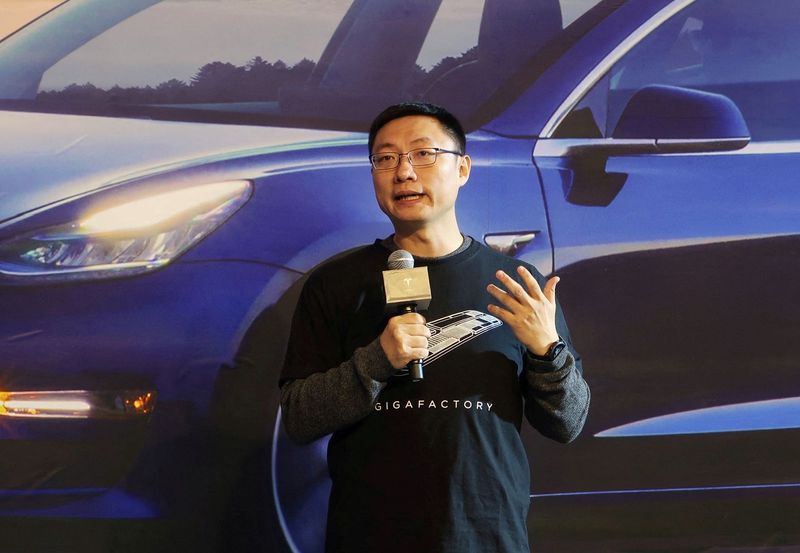
Image Credit: Reuters
Tom Zhu, president of Tesla in China, has recently been promoted at Tesla. Zhu’s new mission: direct the electric carmaker’s US assembly plants, in addition to sales operations in North America and Europe.
It’s a global post for the China-born Zhu, who holds a New Zealand passport and whose work ethic is admired by many, including Musk. As a result of the change, Zhu is now one of Tesla’s highest-profile executives.
In his new role, Zhu has direct responsibility for managing operations at Tesla’s major manufacturing centres (“giga” factories in Texas, Shanghai and Berlin, in addition to Fremont, California) — as well as deliveries in all of the company’s key regions.
Musk credits Zhu for Tesla’s Shanghai factory success, starting initial production in October 2019 — to its current 5,000-cars-a-day production run.
Zhu remains listed as holding his position of vice president for Greater China. He continues to be responsible for sales in the rest of Asia, too. Zhu’s reporting lines form what appears to be Musk’s deputy for the EV maker’s global ambitions.
Drew Baglino
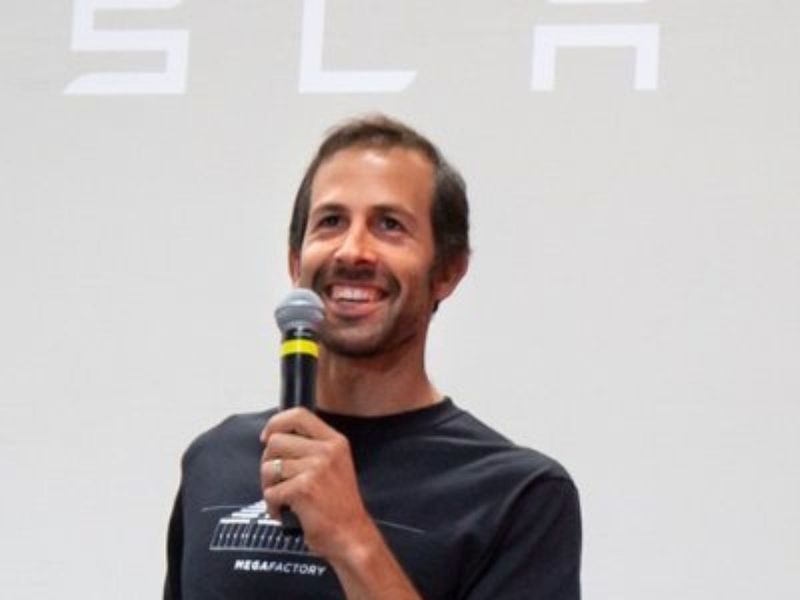
Image Credit: Twitter | @baglino
Andrew David “Drew” Baglino, 39, is seen as another Tesla “back-up CEO”. He currently serves as Tesla’s senior vice president (SVP) for powertrain and energy engineering since October 2019.
After Musk, he is the company’s most senior engineer. He’s the driving force behind the switch to a next-generation powertrain for EVs that uses cutting-edge 4680 battery cells. He heads Tesla’s global “supercharger” rollout.
Baglino, who earned a degree in electrical engineering from Stanford University, has significantly influenced Tesla’s technological advancements. He is overseeing the move toward lithium iron phosphate (LiFePO4), a safer cathode material among lithium-ion batteries and is less fire prone.
His involvement in Tesla’s most potentialy disruptive projects is a closely-watched affair: Baglino is leading the creation of new categories of grid-tied batteries in his role as head of engineering at Tesla Energy.
The reason why Baglino is a leading contender to lead Tesla is because he has a long history with the company and is the most senior employee of Tesla behind Musk. He initially joined the company in 2004. Over the past decade, Baglino has also held positions as VP of technology, director of engineering for Tesla Energy, Model S powertrain architect, and more.
Herbert Diess
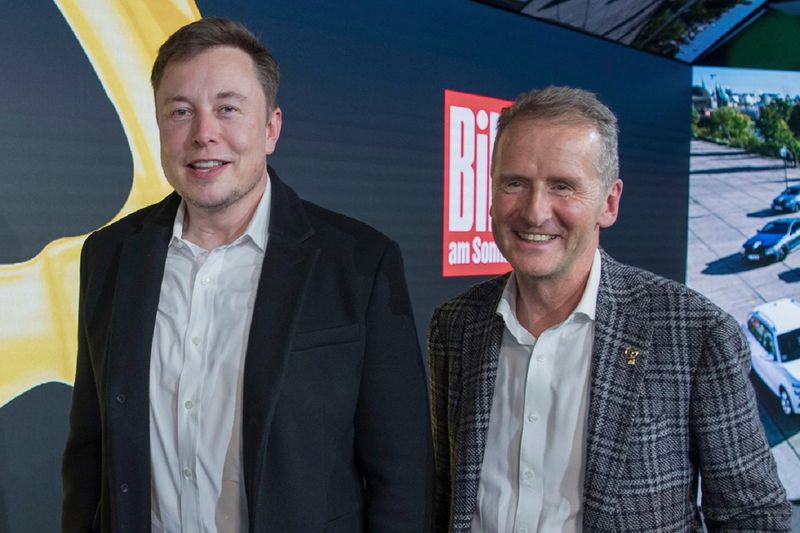
Image Credit: AFP
Former VW CEO Herbert Diess, 64, is on the same wavelength as Musk in accelerating renewable transport. His Twitter description states: “On a mission to shape new mobility and stop climate change.”
He made Tesla his benchmark. The German unions didn’t like that.
Back when he was CEO of German auto giant VW, he considered Musk as a healthy competitor, but they were also each other’s fans.
Diess invited Musk for a visit to the VW factory in Germany and asked him to to give a pep talk to VW executives. In April, Musk wrote: “Diess deserves a lot of credit for moving VW rapidly towards electrification. They’re lucky to have him.”
Not long after that, VW fired Diess (in July 2022), following what auto industry media described as “discontent from labour representatives”. Volkswagen, however, announced that Diess had “resigned” as CEO.
Whatever the case may be, the Musk-Diess mutual admiration is there. In many ways, Diess was seen as having had a much tougher job than Elon — turning around a legacy automaker with a heavy baggage, vs Elon blasting ahead with top talent and unchained to legacy auto.
RJ Scaringe
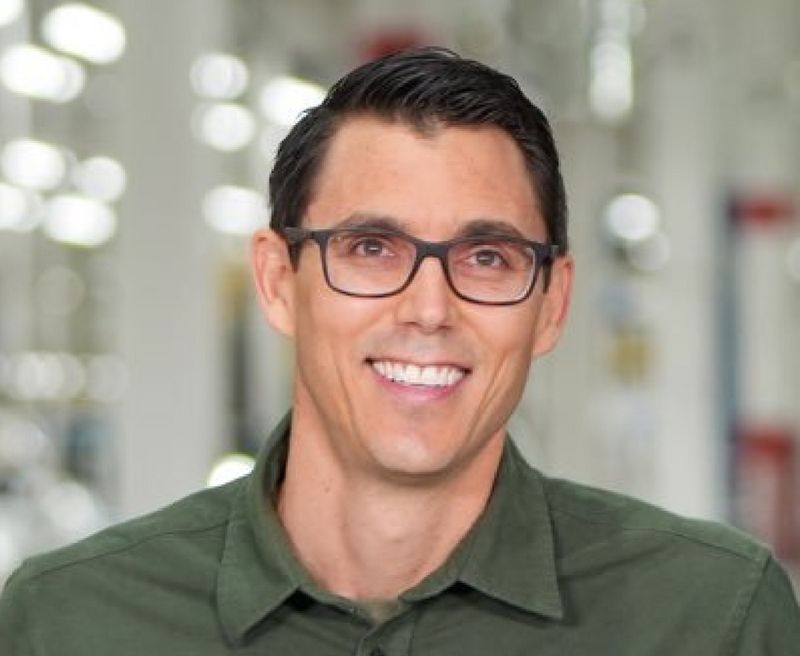
Image Credit: Twitter
Robert Joseph “RJ” Scaringe, 40, is the founder and CEO of Rivian, another EV company. Scaringe owns 1.4 per cent of Rivian, which has a currently market capitalisation of about $15 billion.
Scaringe has proven to be a master fundraiser, after bringing in $11 billion, from a group of investors that includes Blackrock and Amazon. Jeff Bezos’ company has also ordered 100,000 delivery vans from Rivian. In 2022, Rivian produced 24,337 vehicles and delivered 20,332 vehicles.
While Scaringe is much more reserved than Musk in public, he is no less charismatic, is more athletic and an engineer at his very core. The R1T pick-up is described as a “marvel” of EV technology pulled off by Scaringe, who leads a 12,000-member team at Rivian.
John Krafcik
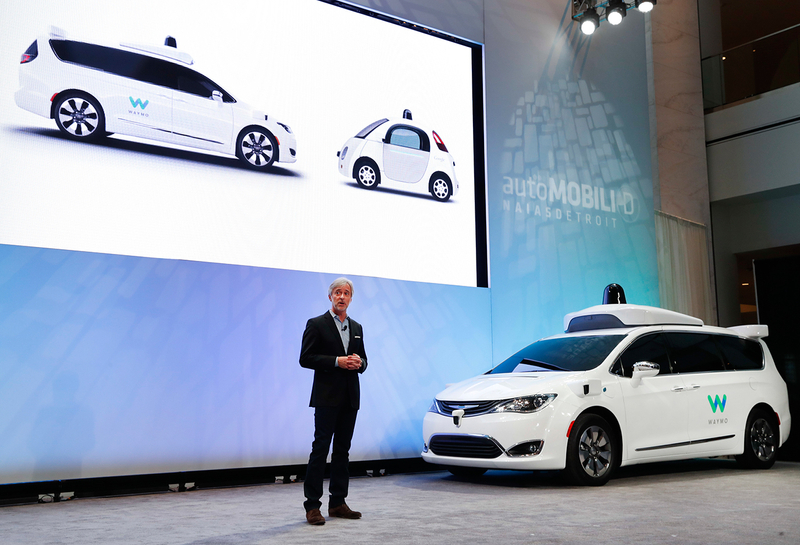
Image Credit: AP
John Krafcik, 61, is the former CEO of Waymo, a self-driving car project. After five years as CEO of Hyundai North America, he spent a year as the president of the online-car-shopping site TrueCar before becoming the chief executive of Waymo, the autonomous-vehicle company founded by Google, in 2015.
Krafcik resigned from Waymo, but during his five years at the company, it built on its head start in self-driving technology to become the industry’s undisputed leader.
Under Krafcik, Waymo launched the first autonomous ride-hailing service in the US, struck partnerships with automakers like Fiat Chrysler and Daimler, and began transporting packages for UPS.
This credentials include positions overseeing many of the functions he would have to handle as Tesla’s CEO — including engineering, product development, manufacturing, online retail, and the development of automated-driving technology.
Because the Waymo Driver operates at Level 4 autonomy, the company claims “no human driver is needed in our defined operational conditions.”
Aicha Evans
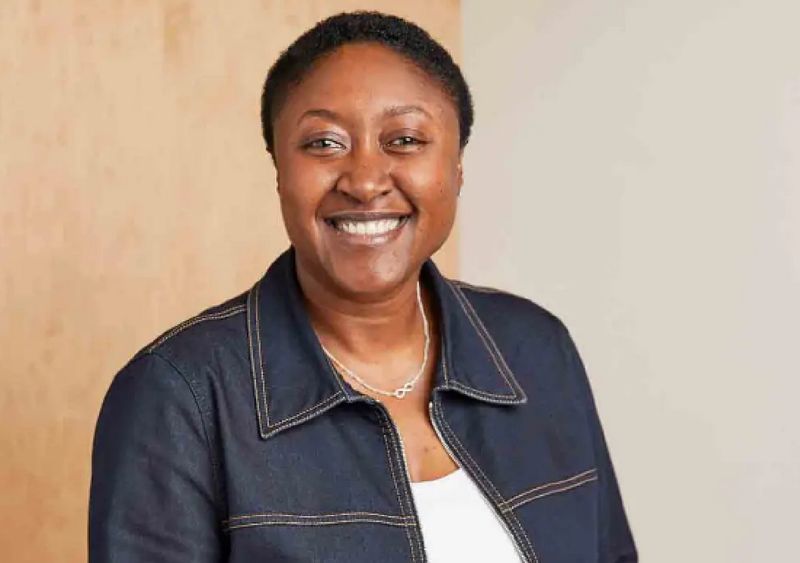
Image Credit: Zoox
Aicha Evans, the CEO of Zoox, is in charge of carrying out one of the most ambitious and difficult business plans in the autonomous vehicle sector.
In contrast to many of its competitors, Zoox is also developing its own electric robotaxi in addition to concentrating primarily on the software and technology required to enable a car to drive itself.
Evans may become a prime choice for other electric- and autonomous-vehicle companies searching for a new CEO if the company is successful. By selling Zoox to Amazon for $1.2 billion, Evans had found a solution to the fundraising problem for Zoox, which is now concentrating on establishing a ride-hailing business, initially in the US.
Peter Rawlinson
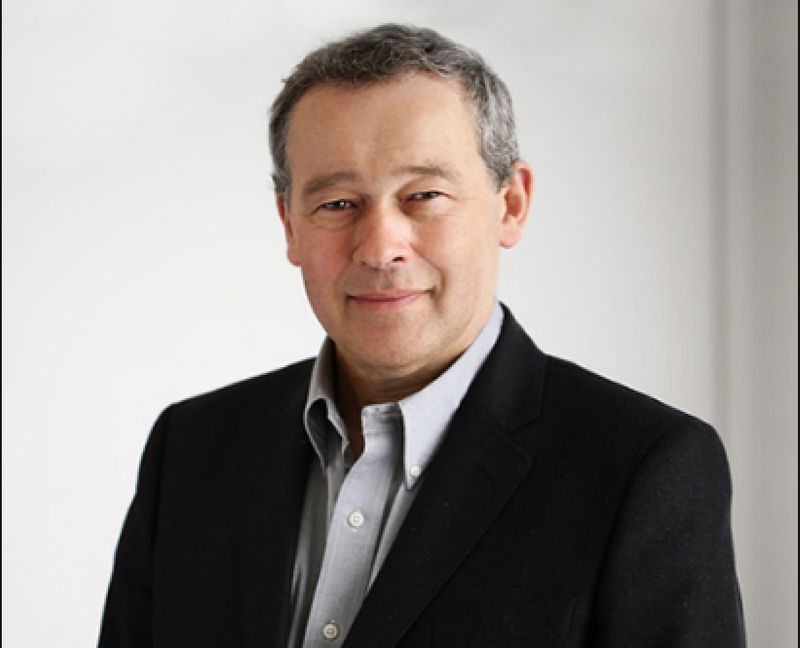
Image Credit: Lucid Motors
He presently serves as Lucid Motors’ CEO. The 51-year-old Rawlinson was a key executive at Tesla before joining Lucid in 2013. He oversaw the creation of Tesla’s Model S car, one of the most renowned automobiles of the decade.
In order to differentiate the firm from its competitors, according to Rawlinson, Lucid’s engineering teams have developed a portfolio of exclusive technologies, including motors, battery packs, and software.
With the Lucid Air sedan, the company’s first vehicle, he hopes to surpass the Model S. In 2022, Lucid produced 7,180 EVs, slightly more than management had anticipated.
Due to its capacity to extract more performance from a more compact powertrain, the Lucid Air offers the longest driving range of any EV. If he can overcome the manufacturing challenges, he could make the Air the EV industry’s next big thing.
JB Straubel
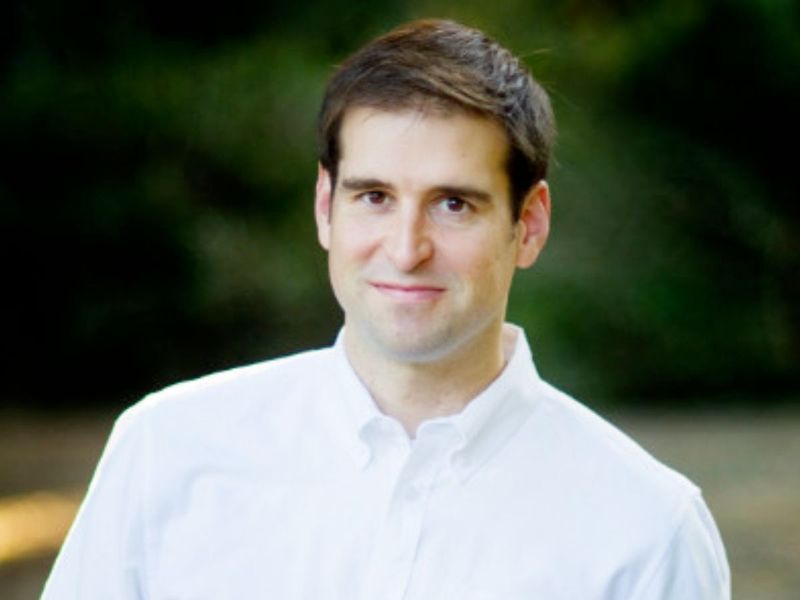
Image Credit: LinkedIn
Current CEO of battery recycler Redwood Materials is Jeffrey Brian “JB” Straubel, former chief technology officer at Tesla. In order to devote more time to Redwood, the company he created in 2017 that specialises in recycling EV batteries, Straubel quit Tesla in 2019.
However, 47-year-old Straubel had served as Elon Musk’s right-hand man since 2004. As employee No. 5 at Tesla, Straubel devoted a significant portion of his time to establishing the company’s fledgling operations and fulfilling its early commitments. Straubel ultimately pursued Redwood more vigorously due to his interest for battery recycling, although he is still in the running.
Due to Straubel’s involvement with Tesla since before anyone had even heard of it, his lifelong commitment toward aiding the development of EV remains. Straubel is a possible candidate for the role of CEO of the company because of his familiarity with Tesla itself and the ecosystem that surrounds it as well as Redwood’s connections with key corporations like Panasonic and Amazon.
